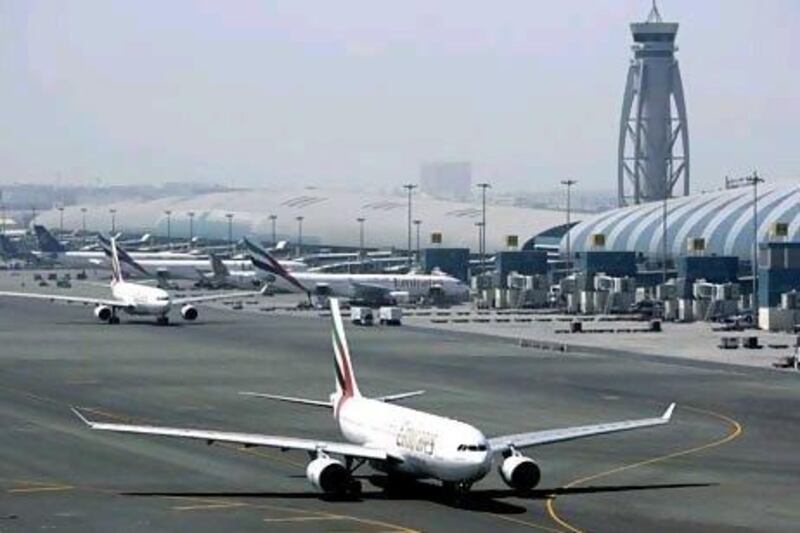The aviation industry contributes more than Dh145 billion ($39.47bn) to the UAE economy, or 14.7 per cent of GDP, justifying the country's huge investment in airports and airline networks, the International Air Transport Association (Iata) said yesterday.
Tony Tyler, the chief executive of the Iata, said airlines in the Arabian Gulf had been the "catalyst" for transforming and rapidly expanding the region's economies.
"Governments here understand the power of connectivity to drive economies, and with this understanding governments have created a business-friendly environment for air transport with low taxes and world-class infrastructure." said Mr Tyler, speaking at the World Passenger Symposium (WPS) in Abu Dhabi.
"Including aviation-enabled tourism, our industry supports some 14.7 per cent of GDP and 14 per cent of the workforce in the UAE."
The airline industry has undergone a dramatic shift in recent weeks as legacy carriers have embraced Gulf airlines through various partnerships.
Accused by airline executives in recent years for being propped up by oil money, Emirates Airline, Etihad Airways and Qatar Airways have all recently agreed deals, changing the industry zeitgeist.
In September, Emirates and Qantas signed a deal to route the Australian carrier's flights to Europe through Dubai rather than Singapore.
Then last week, Etihad signed a 10-year "major strategic agreement" with Air France-KLM and Qatar announced it was joining the Oneworld alliance, which includes British Airways.
"It's a new era of global aviation in my opinion," said James Hogan, the chief executive of Etihad, on the sidelines of the WPS.
"Like any business cycle, you have to change and innovate or you die. And I think you are seeing the result of all the Gulf carriers being innovative and taking advantage of our geographic position and partnering with airlines that see that same opportunity."
Mr Hogan added that Etihad would directly contribute $8.05bn to the Abu Dhabi economy this year - about 10.6 per cent of the emirate's non-oil GDP and 4.3 per cent of total GDP.
In its latest study, developed in conjunction with Oxford Economics, the Iata said the airline industry contributed 14.7 per cent of GDP, or Dh145bn, in the UAE in 2010.
It directly supported 224,000 jobs and a further 209,000 indirectly in sectors such as tourism, the report said.
"More broadly, aviation has taken centre stage in the economic development of the Gulf region," said Mr Tyler.
Opening the WPS, Sheikh Nahyan bin Mubarak, Minister of Higher Education and Scientific Research, rebuked global criticism that Gulf airlines were propped up by government subsidies.
"Interventions by governments, still all too common, generally tend to impede the industry's ability to manage true demand and supply," he said.
"False beliefs about government subsidies to certain airlines in our region have caused some governments to deny those airlines full access to their markets. Such actions harm not only the airlines but also the service providers and aircraft manufacturers that depend on a healthy, growing airline industry."
Government authorities are investing further in airport infrastructure across the UAE, potentially creating further employment.
A consortium of banks recently agreed to help fund the new Midfield Terminal being built at a cost of more than Dh10bn for Abu Dhabi Airports Company.
Meanwhile, Dubai Airports last year announced it would invest $7.8bn in an airport expansion programme for Dubai International as it aims to boost its capacity from 60 million passengers a year to 90 million by 2018.
Already, passenger numbers at Gulf airports are rapidly increasing. The latest Iata air passenger traffic survey for August showed that passengers numbers jumped 16.7 per cent for Middle East airlines, but just 5.3 per cent for the industry as a whole.
The aviation body also upgraded this year's anticipated global airlines earnings to $4.1bn from its June forecast of $3bn, driven by greater profitability at Middle East carriers.





